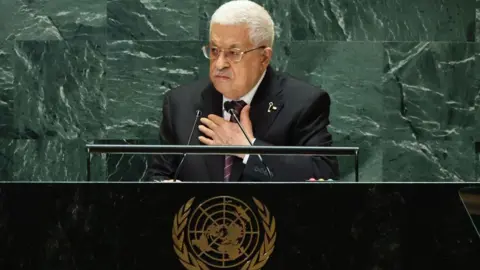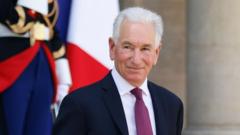The United States announced on Tuesday its decision to withdraw from UNESCO, the United Nations cultural organization, reflecting President Trump’s firm stance against multilateralism and international entities. The announcement made by the State Department came as part of the Trump administration's ongoing strategy to distance itself from global organizations.
Tammy Bruce, a spokesperson for the State Department, emphasized that maintaining ties with UNESCO was not in the national interest. She positioned the agency as one that promotes "divisive social and cultural causes," stating its heavy focus on the U.N.’s Sustainable Development Goals contradicted the “America First” approach to foreign policy.
The parting from UNESCO isn't entirely unexpected, given the long-standing contentious relationship between UNESCO and the U.S. This relationship saw the U.S. exiting the organization during Trump's prior term before rejoining under President Biden’s administration. Trump’s approach to organizational involvement became evident when in February, he ordered a thorough review of U.S. funding towards the United Nations, highlighting UNESCO’s alleged “anti-American bias,” as stated by Will Scharf, the White House staff secretary.
UNESCO, renowned for designating important World Heritage sites and promoting global educational programs, has been instrumental in preserving cultural heritage and fostering international cooperation, including initiatives focused on equality for women and ocean conservation. Notably, the U.S. ceased funding UNESCO in 2011 after the organization accepted Palestine as a full member. Subsequently, Trump's administration followed in 2017 with a full withdrawal due to perceptions of anti-Israel bias.
In 2023, the Biden administration reconciled with UNESCO, acknowledging the power vacuum left by the U.S. could be filled by nations like China. However, with the recent withdrawal, experts and commentators are closely scrutinizing the implications of shifting U.S. foreign policies and their effects on international cooperation.
Aurelien Breeden is covering this story from Paris on behalf of The Times.
Tammy Bruce, a spokesperson for the State Department, emphasized that maintaining ties with UNESCO was not in the national interest. She positioned the agency as one that promotes "divisive social and cultural causes," stating its heavy focus on the U.N.’s Sustainable Development Goals contradicted the “America First” approach to foreign policy.
The parting from UNESCO isn't entirely unexpected, given the long-standing contentious relationship between UNESCO and the U.S. This relationship saw the U.S. exiting the organization during Trump's prior term before rejoining under President Biden’s administration. Trump’s approach to organizational involvement became evident when in February, he ordered a thorough review of U.S. funding towards the United Nations, highlighting UNESCO’s alleged “anti-American bias,” as stated by Will Scharf, the White House staff secretary.
UNESCO, renowned for designating important World Heritage sites and promoting global educational programs, has been instrumental in preserving cultural heritage and fostering international cooperation, including initiatives focused on equality for women and ocean conservation. Notably, the U.S. ceased funding UNESCO in 2011 after the organization accepted Palestine as a full member. Subsequently, Trump's administration followed in 2017 with a full withdrawal due to perceptions of anti-Israel bias.
In 2023, the Biden administration reconciled with UNESCO, acknowledging the power vacuum left by the U.S. could be filled by nations like China. However, with the recent withdrawal, experts and commentators are closely scrutinizing the implications of shifting U.S. foreign policies and their effects on international cooperation.
Aurelien Breeden is covering this story from Paris on behalf of The Times.























